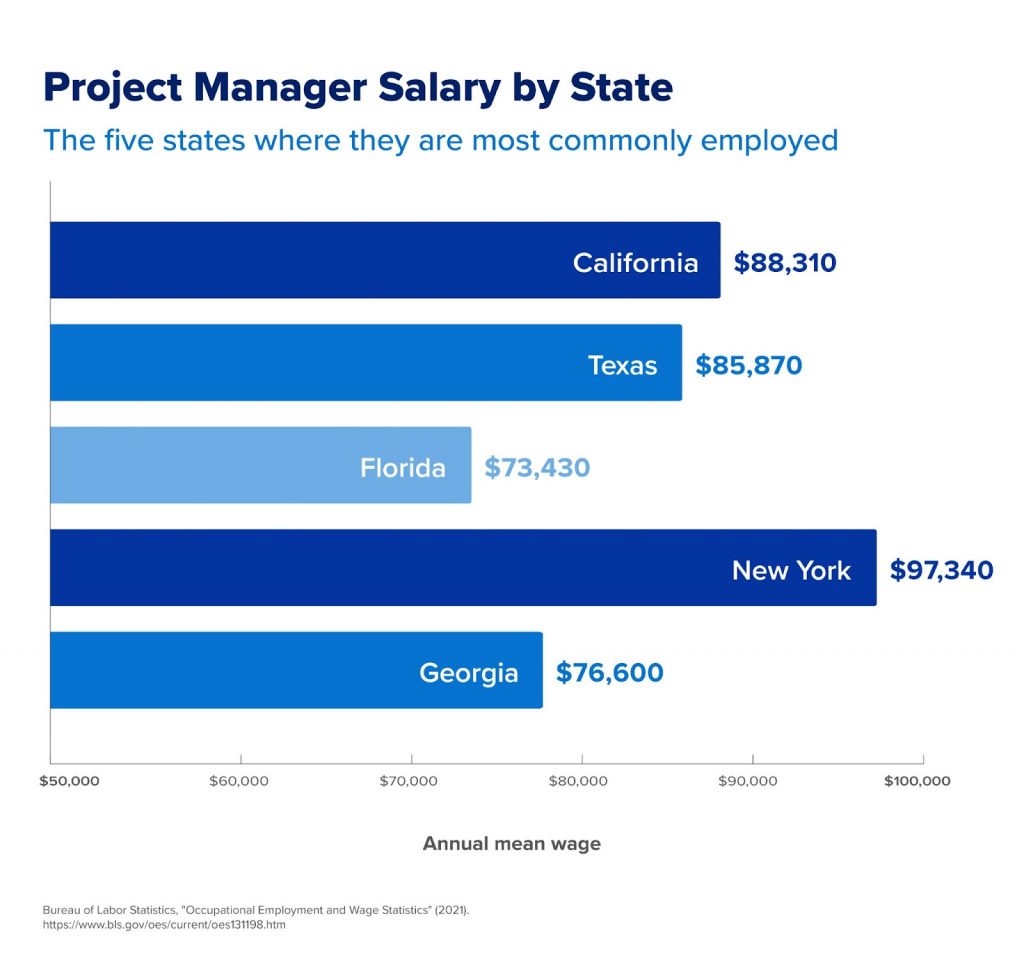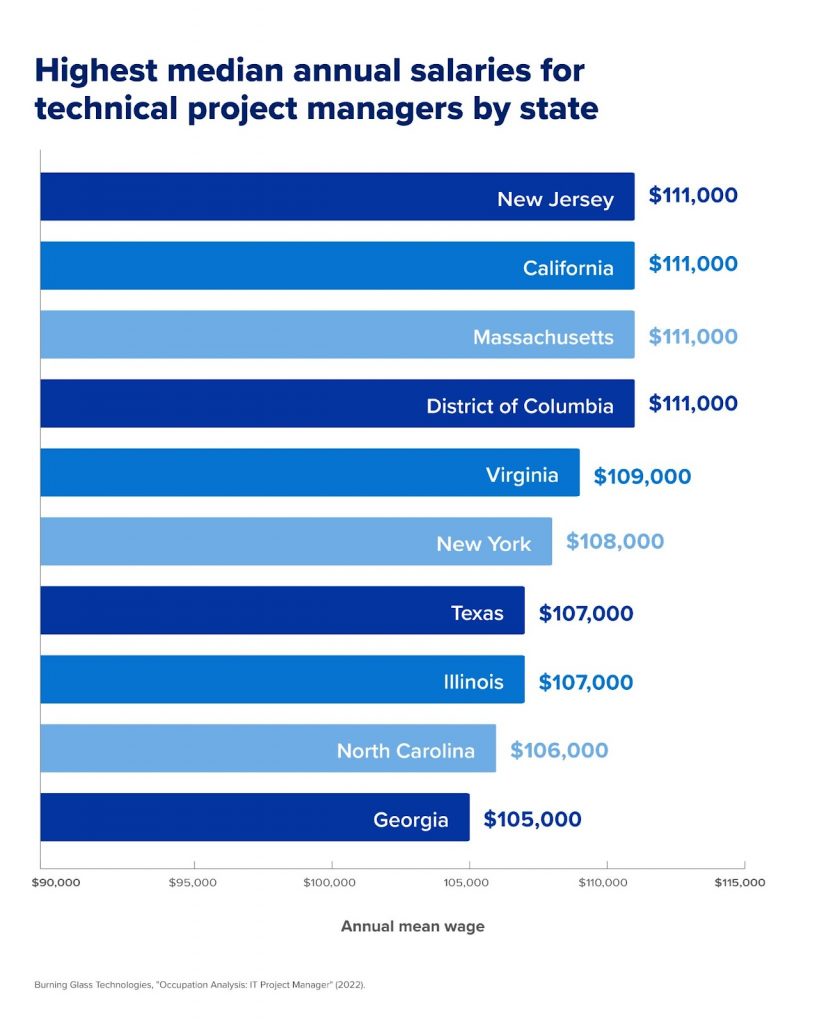Project Manager Career Path
Project managers, while not required to earn a specific college degree, tend to have a foundation in business, computer science, or other industry-related fields. In some cases, PMs go on to earn an MBA or MSM (Master of Science in Management).
Certificates, such as a Project Management Professional (PMP) certificate or a Certified Associate in Project Management (CAPM) certificate, are also preferred but generally not job requirements. Additional credentials are also attainable, such as an Award of Completion from Columbia Engineering Technology Project Management Boot Camp.
Key technical PM competencies include resource planning, project management software, agile methodologies, Scrum framework, and hybrid project management.
Resource planning (i.e., the scheduling and management of resources, whether human resources, equipment, or facilities) has long been regarded as critical to company growth, ensuring profitability and sustainability. By one assessment, the return on resource planning can be up to 10 times greater than the cost of implementation.
In addition to project management methodologies, project managers should also have a grasp of software like Asana, Basecamp, JIRA, and Microsoft Project, enabling them to monitor workflows in real time. According to Forbes, waterfall methodology is best used for linear projects, while agile frameworks are a better option for iterative development projects. Hybrid methodologies, which meld the best attributes of agile and waterfall methodologies, are also available.
Soft skills are equally important for a successful project manager. Indeed lists 20 vital soft skills a successful project manager needs, with communication ranking in the number one slot. In fact, according to one survey, forty-four percent of the business leaders surveyed indicated that communication issues were the primary reason for project delays or cancellations.
Indeed also cites skills like organization, problem-solving, and conflict management as important soft skills, and the Project Management Book of Knowledge (PMBOK) ranks conflict management as one of the biggest challenges project managers face given the various stakeholders and personalities they deal with regularly. And, just as communication is critical to resolving conflict, so too is active listening — another soft skill PMs simply cannot do without.
With the clear need for a variety of strong soft skills, it’s no wonder that a project manager who is emotionally intelligent (i.e., self-aware, empathetic, socially skilled) is much more likely to thrive in the role.
It’s also important to note that project management is different than product management. While there is some overlap between the two roles, the key difference is that the product manager is responsible for product strategy, market research, and development, while the project manager makes sure that product is delivered on time and on budget.
To learn more about the project management career path, consider our guide: What Is a Project Manager?

 Live Chat
Live Chat

